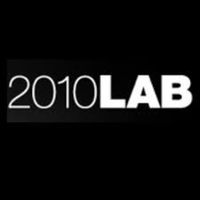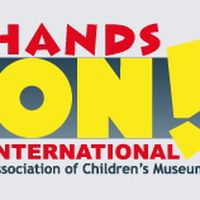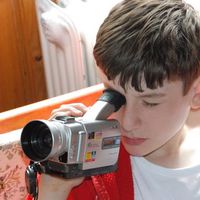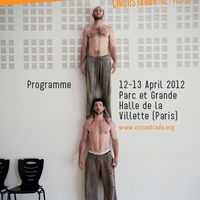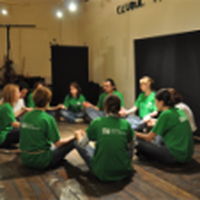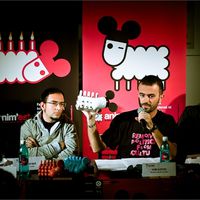Picnic 2011 | Building on our creativity
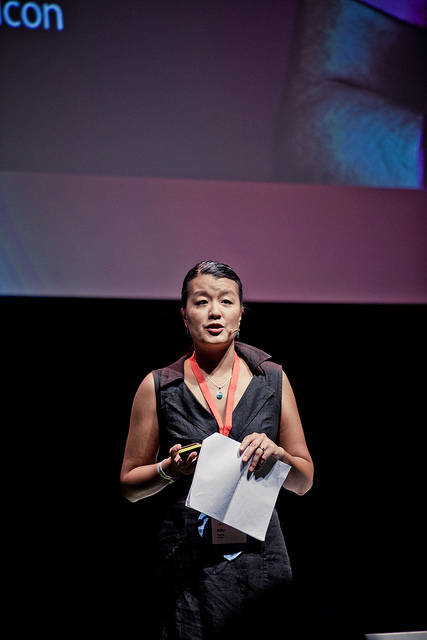
[caption id="attachment_16605" align="aligncenter" width="427" caption="Kitty Leering"]
PICNIC 2011 is a festival that has taken place at NDSM Wharf in Amsterdam last September. PICNIC is a good example of combining cultural management, web design, new media, urban concerns, environmental issues. It was a three full days of information, inspiration, collaboration, co-creation and entertainment and it a chance for development of partnerships.
Florentina Bratfanof talks to Kitty Leering, the Program Director & interim General Manager of PICNIC, to discover more about some key-facts of the festival.
Kitty has been involved with PICNIC from the very start, working on the project management of the whole Festival in 2006 and 2007. In 2008, she became more involved with the programming of the Specials and the Labs. As of 2009, she is responsible for all of the PICNIC Festival programming.
What were the key ideas and the major issues PICNIC was founded on?
PICNIC was founded by Marleen Stikker, who is still our chair of the board, and Bas Verhart, with the full support of the local Amsterdam and Dutch national government. Their initial goals were to stimulate the thriving creative industries in the Netherlands and help position Amsterdam as the "Creative Capital in Europe". To achieve these targets, we decided that PICNIC should provide inspiration, insights in the latest developments and be a place to connect and share ideas.
Catering for creative minds, we knew that PICNIC should not be another traditional industry event were people that already know each other, hear stories that they already heard. We wanted PICNIC to be a rich experience with unexpected content that would offer non-traditional perspectives on creativity and technology. For that reason we aim for a broad variety within our audience, our partners and our content, so that everyone can broaden his or her horizon. Over the years we have welcomed professionals from old and new media, entertainment, design, arts, advertising, science and education, R&D and business development, technology, government and non-profits.
In the course of our short existence, PICNIC's attention shifted more and more to societal, sustainable and business challenges in the world and the question of how the creative application of technologies could make a difference.
Who were the first "friends" of the event: persons, institutions, supporters.
The Amsterdam municipality was not only our first friend, but also PICNIC's founding partner, with former mayor Job Cohen as our personal champion. With the subsidies provided by the city, PICNIC was able to experiment with the format and program, without running too much risk. In addition to the city, we were supported by a fine selection of leading companies in the Netherlands and highly respected knowledge and cultural institutes.
What is the process of choosing leaders, speakers, advisors?
Based on important developments and challenges in the world we decide on an overall theme and several subthemes. Those are leading for the selection of speakers and advisors. During the year we talk to former speakers, industry leaders, professionals and partners and of course we consult leading publications. In addition to this we invite our network to submit ideas, proposals, and suggestions. But a big part of the selection process is also driven by intuition.
I am very curious to learn more about the impact that PICNIC has on the participants of each edition. How much are they involved in the feedback process?
Our PICNIC audience has gradually changed over the years from consumers to participants. We try to create an optimal environment that stimulates active exchange, exchange and the co-creation of interesting, unexpected concepts. As our visitors are usually quite verbal, we receive great feedback: positive as well as critical. We are grateful for both, as it allows us to stay in touch with our audience and improve our work.
Europe’s largest festival for creativity, innovation and collaboration, here are some numbers for this year's edition:
PICNIC Festival 2011 visitors
• 5000+ visitors over 3 days
• 250+ journalists & bloggers
• Attendees from 33 counties, including visitors from across Europe, the UK and North America, plus representatives from as far as Australia, Brazil, Hong Kong, Nigeria, Peru and South Africa
The Festival program
• 170+ speakers
• 140+ sessions (Lectures, Workshops, Labs & more)
• 85 growing creative businesses at the Marketplace
• 1 theme: Urban Futures; 5 sub-themes: Infrastructure, Sustainability, Society, Design and Media
Prize from international competitions
• Total of € 700,000 awarded by Postcode Lottery Green Challenge
• Total of € 225,000 awarded by Vodafone Mobile Clicks
Formal sponsors & partners
• 10 sponsors (including National Postcode Lottery, Vodafone, Waag Society, BMW i, the Dutch Chamber of Commerce, Logica, Microsoft, RTL, SII and UPC)
• 8 new PICNIC Business Club members: Corio, Edelman, Ernst & Young, Hogeschool van Amsterdam's Media, Creation & Innovation deparment, Inholland, LinkedIn, Dutch Ministry of Economic Affairs, Agriculture and Innovation, and Sanoma Media
• 70 total media, content, service and event partners
Promoting the event
• 1 new website, created by Yoomee
• 60 unique posters designed by international artists and agencies for the PICNIC Poster Project
• 75,000 emails sent to partners, network and contacts
Building the PICNIC City
• 7 days to construct (started 7 September)
• 33 transports from BAM to get the materials to the NDSM
• A team of 77 to oversee the construction (15 members of the PICNIC team, 7 experts from BAM, and a production crew of 55 from Livetime)
• 750 meters of barrier tape used on site
Read more about PICNIC here:
https://culture360.asef.org/event/amsterdam-picnic-festival/
Further Resources:
PICNICS 2011 interdisciplinary themes. Every year, their key themes (http://www.picnicnetwork.org/pages/57) evolve to reflect changes in our personal lives, our society, economy and environment.
Another motto of PICNIC is “Make and create”. PICNIC is not for observers, it’s for participants (http://www.picnicnetwork.org/pages/58). Lectures are only a small part of the PICNIC experience. Competitions, challenges, social games, matchmaking, labs and workshops encourage everyone to get involved and get their hands dirty.
Video Talks and Lectures: http://www.picnicnetwork.org/stories
Florentina Bratfanof has worked in the theatre field in Romania for the past 10 years, first as a Press Officer for ACT Theatre, the first independent theatre in Romania, then from 2006 as a cultural journalist for online magazine, www.121.ro. In 2008, after obtaining a master diploma in cultural management in Belgrade, she has been involved as well in the Press Office of several international theatre festivals: Romanian National Theatre Festival, Bucharest, Romania (2008-2010); “Underground Arad Fun” Festival, Arad, Romania (2009); 36th International Festival of Alternative and New Theatre, Novi Sad, Serbia (2009), “George Enescu” International Festival and Competition, Bucharest, Romania (2009). From 2009 to 2010 she was Artistic Consultant of Odeon Theatre, Bucharest. In parallel, from 2009 till present, she helped growing Scena.ro magazine (www.revistascena.ro) in terms of PR, distribution, also contributing with articles and interviews. Currently she holds the position of PR Manager of Romanian Association of Performing Arts (RAPA), but she is also Talent Scouter for Media Pro Pictures.
Similar content
01 Dec 2010
02 Nov 2010

